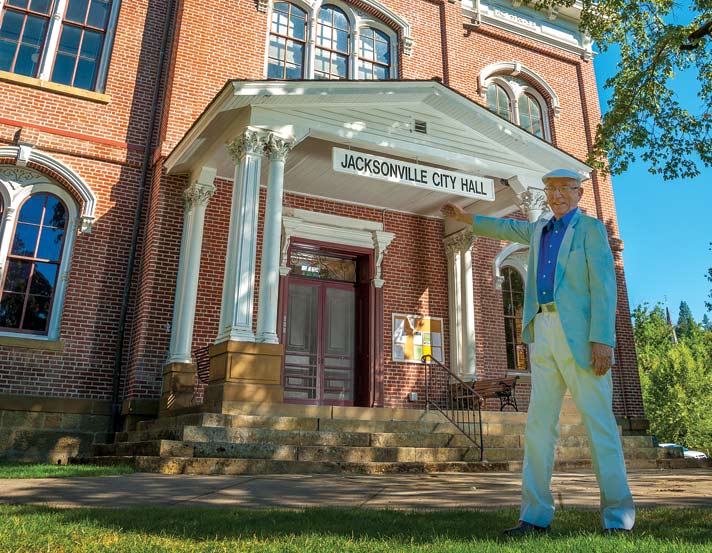A Few Minutes with the Mayor – Submitted for the May 2020 issue
The other day someone asked me to compare the effects of the coronavirus pandemic on citizen‘s lives with the aftermath of Pearl Harbor during World War 2. I can start by saying that nothing else in my ninety years on this planet has been as life-changing as these two events. However, America before the war and America before the virus were two very different societies. The changes imposed by each event are also different. The war took men out of their homes leaving wives and family behind. While the men were storming the beaches of hitherto unknown Pacific atolls, the women were for the first time working in the factories building the tanks, planes, and weapons for their fighting men.
The virus, with its draconian effect on the workplace, has done just the opposite leaving both spouses and even their school-age children at home with no place to go. This is a war fought by our medical heroes, not our military heroes. Our healthcare providers and the scientists fighting this microscopic enemy are the ones on the front line while the American family is generally housebound.
Today’s scene of people lined up with fully loaded shopping carts at grocery stores does bring to mind the war years when everything was rationed. Supplies were scarce even when available. Ration stamps were used for almost everything. Sugar, coffee, meat were limited by allotments spelled out in ration books to each head of household. One pound of coffee every five weeks… three gallons of gas every week, but only if you prove a need… and bacon or ham 4 ounces per week!
Unable to resist a good thing when they saw it, gangsters began operating black markets… especially in tires. Most people were not allowed to buy a new tire during the war. They had to keep retreading or patching the old one… a fertile environment for crooks if there ever was one. Even Hollywood got into the act by producing movies with names like Rubber Racketeers.
I am living proof that some teenagers are oblivious to anything adults do around them. It was early in the war and I remember the mother of a friend of mine taking us to lunch at a popular restaurant called Schrafft’s. To my surprise she pulled out a packet of sugar from her purse to use with her drink. Restaurants did not serve sugar at the table. You brought your own.
There are those who take from others and those who give to others. Every crisis brings out the takers. The current laugh going around is the one about toilet paper and the empty store shelves that used to be full of the stuff. The other day, Sharon and I were walking through Ray’s parking lot when we saw a parked car with California license plates. The back seat of the car was stuffed to the ceiling with toilet paper. It was enough to last the average family for years. Toilet paper has become the new item topping the list of things for people to hoard. But who could imagine someone hoarding cooked chickens? A friend of mine in Tennessee told me of his recent trip to Costco where a woman loaded every roasted chicken they had, what seemed to be more than a hundred, onto her cart; Out of curiosity he asked her what she was going to do with all those chickens. Her answer was unprintable.
With so many things in short supply, World War 2 had its own problems with hoarding. Only then the government took an active hand in discouraging it by public campaigns shaming the hoarders, even to the point of accusing them of helping Hitler. Again, Hollywood got into the act in films such as Since You Went Away where Agnes Moorehead plays a socialite hoarding sugar and wasting goods to the dismay of Claudette Colbert. The message was clear… hoarders are selfish, unpatriotic, and bad neighbors.
So what about our world today? My feeling is that the worst part of this virus epidemic will be over by the beginning of June. Most of us will resume normal activities shortly after. The number of viral infections is far from spiking, but if you follow the guidelines set out by the federal and state authorities you should come through in good shape as far as your health is concerned. My major concern is the economic impact this will have on our local merchants, but only time will reveal the answer to that.
Today’s generation is not used to sitting around the house day after day as they had to during the Great Depression when I was a child. Yet, there is an upside to it. Spouses formerly too busy can actually become reacquainted with each other. Parents spending real time with their children? Perhaps both good and not so good. I hear from friends who, after year of procrastination, bragged of a sense of accomplishment after sorting and organizing photo albums, even clearing out drawers and cupboards. Now, wasn’t that fun? You gotta laugh, even if nothing seems funny. We know laughter is the greatest tool for chasing the blues away. But that’s the subject of a future column.
